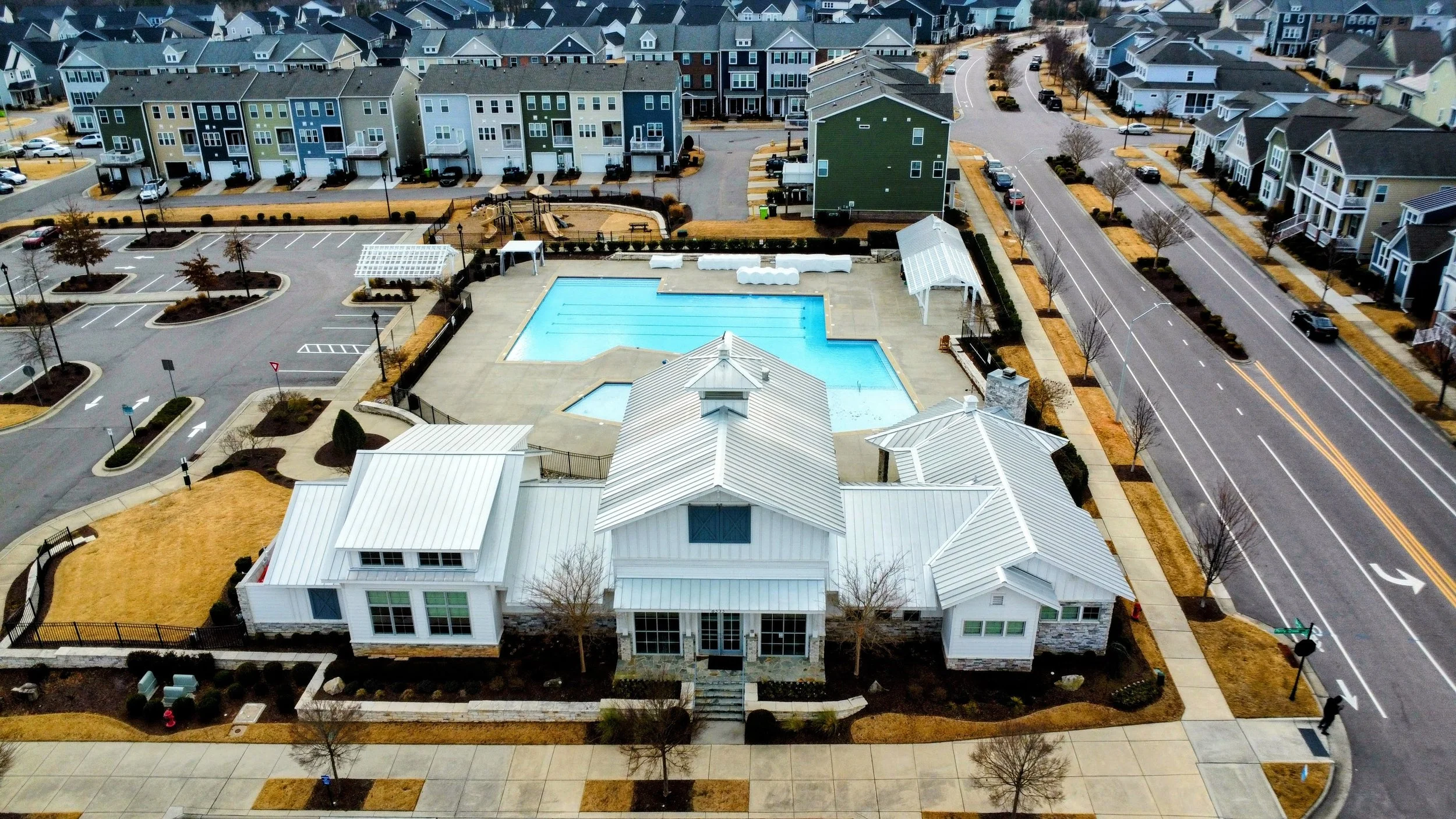The Rise Of Mixed Use Developments and How It Affects Real Estate Agents
The Triangle Area of North Carolina—comprising Raleigh, Durham, and Chapel Hill—has become a hotspot for development in recent years. One of the most significant trends emerging in the region is the rise of mixed-use developments. These projects, which combine residential, commercial, and sometimes even recreational spaces in one location, are reshaping the urban landscape and creating a ripple effect on the local real estate market. For real estate agents, this trend brings both new opportunities and challenges.
What Are Mixed-Use Developments
Mixed-use developments (MUDs) are multi-purpose spaces designed to create a more integrated and walkable community. These developments typically feature a blend of apartments, office spaces, retail shops, restaurants, and entertainment options, all within close proximity to one another. The concept is rooted in the idea of "live, work, and play" all in one area, reducing the need for long commutes and encouraging a more sustainable lifestyle.
In the Triangle area, cities like Raleigh and Durham have witnessed an increase in MUDs, particularly in revitalized downtown districts. This trend aligns with the growing demand for urban living spaces that offer convenience, accessibility, and an elevated lifestyle experience.
The Impact on Real Estate Agents
For real estate agents working in the Triangle area, the rise of mixed-use developments is transforming the way they do business. Here are several key ways these developments are impacting agents and their clients:
Increased Demand for Urban Living As more people look to live in walkable, vibrant communities, the demand for housing in mixed-use developments is on the rise. For real estate agents, this means more inventory to sell, but also more competition to secure desirable listings. Clients are increasingly looking for the convenience of being able to walk to work, grab a coffee, or go to dinner without leaving their neighborhood. Agents need to understand the appeal of these developments and be able to showcase the lifestyle benefits to potential buyers or renters.
New Niche Markets Mixed-use developments attract a variety of buyers, including young professionals, empty nesters, and even retirees seeking a low-maintenance lifestyle. Real estate agents must be able to cater to these diverse groups by understanding the specific needs of each demographic. Additionally, investors are eyeing these spaces as profitable rental properties, and agents may need to tap into this market by guiding clients toward investment opportunities within MUDs.
Complex Transactions The nature of mixed-use developments often results in more complex transactions. Agents may need to familiarize themselves with zoning laws, building codes, and the intricacies of commercial vs. residential leasing and buying. Navigating these complexities requires a deep understanding of local regulations, as well as the ability to negotiate terms that work for both residential and commercial clients. Real estate agents might also work closely with developers and property managers to facilitate smooth transitions between phases of development.
A Shift Toward Experience-Based Selling Selling mixed-use properties is not just about showcasing the physical space but also about highlighting the lifestyle that comes with it. Whether it's the proximity to cultural hubs, the convenience of amenities, or the sense of community, agents need to adopt an experience-based selling approach. Real estate agents in the Triangle will need to hone their marketing skills to emphasize the lifestyle benefits, focusing on how the property fits into the broader vision of the area’s growth and development.
The Future of Commercial Real Estate As more commercial properties are integrated into mixed-use developments, there is an increased demand for flexible spaces that can accommodate a variety of businesses. Real estate agents specializing in commercial properties will find new opportunities in these types of developments. Whether helping a startup find office space or working with restaurant owners looking for a prime location, real estate agents will need to stay ahead of the curve in understanding how mixed-use spaces can benefit businesses.
How Can Real Estate Agents Leverage the Trend?
To effectively navigate this new landscape, real estate agents should embrace a few key strategies:
Stay Educated: Understanding zoning laws, the construction process, and the economic factors driving mixed-use development is crucial. By staying informed, agents can provide valuable insights to clients.
Develop Relationships with Developers: Collaborating with developers and property managers can give agents early access to new projects and allow them to guide clients to the most desirable spaces.
Highlight Lifestyle Benefits: Real estate agents should focus on the convenience and lifestyle offered by MUDs—this includes everything from access to public transport to nearby restaurants and entertainment.
Adapt to the Evolving Market: Be ready to pivot and offer solutions for both residential and commercial clients, as demand for commercial spaces within MUDs continues to grow.

